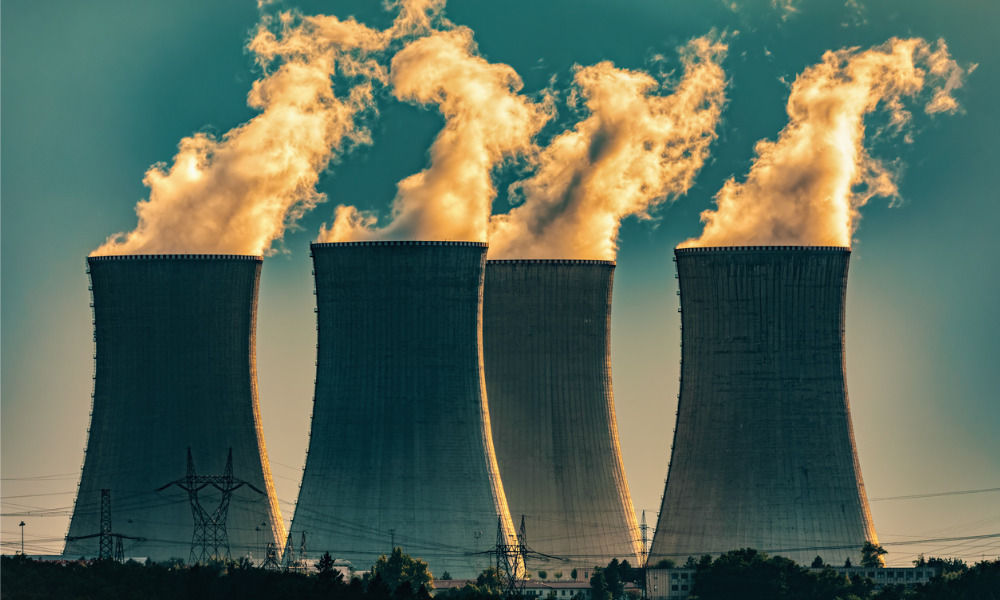SVP & Portfolio Manager explains the business case, and sustainability case, for a nuclear exposure

Nuclear power is likely going to play an increasingly important role in the world’s energy future. A near-zero emission energy source that lacks the peaks and valleys of output typical of wind and solar, nuclear power is expected to grow in usage and demand as the world shifts away from fossil fuels.
As demand for nuclear power increases, the Mackenzie Betterworld team is seeing a stronger returns case for nuclear exposure in their portfolios. Mackenzie Betterworld manages the firm’s suite of sustainable investment funds. Late last month they announced they were lifting an exemption for nuclear energy in their funds, allowing nuclear power generators to enter their portfolios. Andrew Simpson, SVP, portfolio manager, and head of team at Mackenzie Betterworld explained why his team is opening the door to nuclear exposure in their funds from both a sustainability and a returns perspective.
“Historically we had avoided nuclear primarily due to the facts of cost overruns and implementation delays. Those didn’t make the industry attractive in our view.” Simpson says. “Now we think it’s a secular opportunity. These businesses are a big part of decarbonization. We’ve seen increasing regulatory support for nuclear energy in the transition to achieve net zero. There’s also innovation, we’re on the cusp of some really attractive innovation opportunities related to small modular reactors and Canada’s playing a big part in that opportunity going forward.”
Those small modular reactors (SMRs) represent a potentially significant change for the shape of the nuclear industry. Where previously nuclear power was defined by massive reactors requiring huge capital outlays to build, SMRs could be built in a factory and shipped directly to a site, where they can be operated by a smaller crew. The technology is still in its early stages, but a number of countries have already committed to further investment with an eye to using SMRs to power smaller or more remote communities.
Traditional nuclear also represents an opportunity as countries reinvest in their capacity. On a global scale there are 400 reactors operating in 32 countries. Several businesses are built around the maintenance and upgrading of those reactors, such as CANDU which has a growing list of domestic and foreign contracts.
Simpson’s case for nuclear hinges in large part on government decarbonization initiatives. The Canadian federal budget alone has earmarked between $15 and $25 billion towards decarbonization. The 2022 budget report highlighted that to achieve close to net zero, that number has to be closer to $115 billion.
While nuclear power is a smaller piece of the overall benchmark when it comes to decarbonization, Simpson believes that it now has to be included in their portfolios beyond just their focus on renewables.
While nuclear power is a zero-emission source of energy, there are plenty of sustainability-minded investors who still feel uncomfortable about it. Simpson argues, though, that data and objective analysis shows nuclear power to be both safe and reliable. Using the metric of deaths per terawatt hour, which measures how many human beings die as a result of energy production, Simpson shows that nuclear power amounts to 0.3 deaths per terawatt hour, sitting squarely between solar at 0.2 and wind at 0.4. Oil sits at around 18 deaths per terawatt hour, and coal is around 24. Moreover, nuclear power is one of the most regulated sources of energy in the world, resulting in a safer source of energy than many laypeople believe.
Beyond a pure sustainability case, Simpson believes there are objective business reasons to be bullish on nuclear. The industry is set for a massive engineering influx as reactors are maintained, upgraded, and reoutfitted to extend their lifespans another 25 years. There is also a growing demand for nuclear power in the US, where many states are adding nuclear capacity to meet net-zero goals.
Allowing for nuclear exposure does not mean Mackenzie Betterworld is going all-in on nuclear. Simpson explained that their view now is that nuclear power represents a necessary exposure in portfolios as the world uses nuclear power to achieve its net-zero goals.
“It’s pretty unequivocal that nuclear is needed to meet our 2050 zero emissions goals,” Simpson says. “And we also see this as an industry that’s transitioning to much more innovative solutions, where we think there is a bright future. We see nuclear as part of a diversified sustainability-focused portfolio, and we want to have that exposure in a balanced, diversified basket.”



